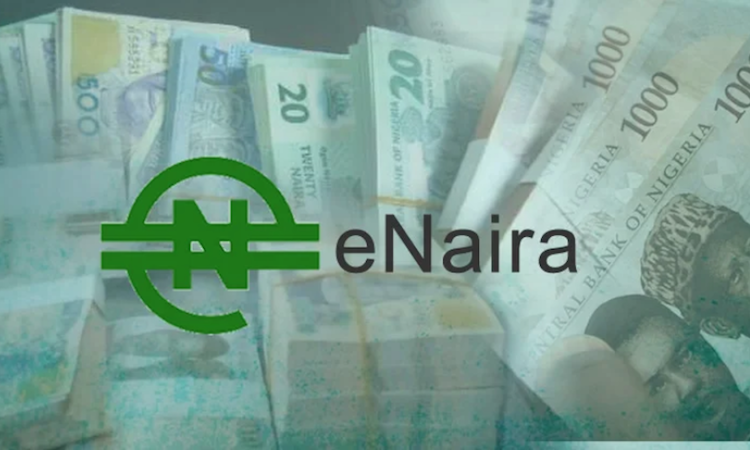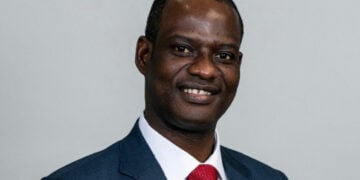The stylish cosmopolitan International Conference Centre in Abuja wore a rare look; one that should be regular for Nigeria and the Nigerian economy to come (more) alive. Decorated by wall-to-wall encryption, the conference centre was doted by talented young and innovative Nigerians in the financial technology (Fintech) industry who thronged the grand finale of the Central Bank of Nigeria-owned – eNaira Hackathon on August 18, 2022.
The event was targeted at providing an engagement with critical stakeholders in the financial technology space to deepen the link between eNaira and Fintechs. The apex bank believes that the ingenious ideas harnessed into the Hackathon will improve the eNaira.
Hackathon is an initiative that creates a collaborative environment for experts with a diverse set of skills to drive sustained innovation geared towards making the eNaira the pinnacle for digital financial services and the gateway to the digital economy. It is driven by the private sector.
Since October 25, 2021, when President Muhammadu Buhari unveiled the eNaira, making Nigeria the first African country to launch a Central Bank Digital Currency (CBDC), the CBN has consistently improved on the process of deepening Nigeria’s payment system to ensure that Nigeria remains a shining star in global spotlight.
For CBN governor Godwin Emefiele, enabling private sector innovation is one of the three foundational principles of Central Bank’s CBDC. Hackathon was another forward leap by the Central Bank in the implementation of eNaira to ensure all Nigerians receive the full benefits of a central bank digital currency.
It is intended to sought solutions that would among other things drive financial inclusion, small and medium enterprises (SME) growth and the creation of start-ups; facilitate cross border trades and transfers as well as international remittances and FX exchanges; effective implementation of welfare-inclined government programs; and enhance efficiency in the interbank market.
The Hackathon event was very strategic given that the future of central banking is inextricably bound to innovation. The large number of teams that competed for the position points to the employment potentials of the eNaira project.
Experts in the financial technology space told our correspondent that innovative products and services built on the eNaira would enhance Nigerians’ participation in the digital economy and promote further development of a burgeoning Fintech ecosystem.
From an initial cohort of over 105 groups that made the quarter finals and 75 teams that progressed to the semi-finals, the Hackathon reached its climax yesterday with 20 teams in the finals from which the top 10 teams emerged as prize winners.
Group head of African Fintech Foundry Daniel Awe is one among those that applauded the CBN’s effort to strengthen the nation’s payment system using Fintechs. Mr Awe said the Central Bank has transformed from traditional regulator to a smart regulator. The Hackathon is a platform that bring entrepreneurs. Coders, product managers to solve problems and build new business model.
Awe says the CBN while performing its major mandate of financial stability, “the CBN… has over the years partnered with innovators that will create employment and bring value.”
The eNaira Hackathon recorded a sizeable interest from young and innovative Nigerians with a total of 4,667 registrations, comprising 4,082 male and 582 female applicants. Speaking at the programme last week, Emefiele said that massive application corroborates the fact that Nigerians, both within and outside the country, possess innovative ideas and are willing and ready to leverage on exciting opportunities that the eNaira presents for enhancing digital financial services and contributing to national development.
Already, the CBN has unveiled a new short code for subscribers of its digital currency, eNaira to make financial transactions on the platform. The aim is to enhance its acceptability with a focus on deepening payment system.“I’m pleased and indeed delighted to inform you all today that by next week, Nigerians both banked and unbanked will be able to open an eNaira wallet and conduct transactions by simply dialing *997# from their mobile phones,” the CBN governor.
As at the last count, the eNaira has reached 840,000 downloads, with about 270,000 active wallets comprising over 252,000 consumer wallets and 17,000 merchant wallets. The volume and value of transactions on the platform have been remarkable, reaching above 200,000 and N4 billion, respectively.
The eNaira is expected to enhance financial inclusion, support poverty reduction, enable direct welfare disbursement to citizens, support a resilient payments ecosystem, improve availability and usability of central bank money, facilitate diaspora remittances, reduce the cost of processing cash, and reduce cost and improve efficiency of cross-border payment among others.
Beyond that, the eNaira is also boosting Nigeria’s digital economy by complementing the various diversification and digitisation initiatives of the federal government including the launch of the Nigeria Digital Economy Policy and Strategy (NDEPS), the National Broadband Strategy, as well as the introduction of the Start-Up Bill and a host of others.
“The CBN is strategic in charting the future of Nigeria’s legal tender, be it in its traditional or digital form as the economy transits to a digital one as well as charting the course for innovation in the financial sector and in the infrastructure underpinning financial markets,” Emefiele said, “hence, the importance of getting the balance right between innovation and stability.”
Emefiele was not a lone voice at the conference. CBN’s deputy governor in charge of economic policy Dr Kingsley Obiora said the use of cash as a means of payment is fast declining, a reason he the minting of currency by the central bank has been reducing over the years. He stated that central banks across the world have decided to step on the plate and respond to the yearning of digital payment system.
He is right. Use of cash in financial transactions is fast becoming archaic. For instance, in south Korea, 77 percent no longer use cash to do payment, while in the Philippines it is 30 percent. In Nigeria too, there is a decline in the use of cash. The minting of currencies in the CBN has been reducing in the last couple of years.
According to Obiora, has also been an explosion in electronic business and e-business alongside the reduction in the use of cash in Nigeria. “We have seen the value of e-business grow from 393bn in 2014 to about 2.4 trillion now and so if you look at this movement, you will realize that the central banks in the world are responding to yearnings of citizens which is why citizens in 96 percent of Central banks in the world are either working on digital currencies or they have done so already,” Obiora said.
Obiora is correct when he said a lot of central banks are trying to copy what has been done by the CBN, a reason he said the Emefiele-led team organised the Hackathon with a focus on harnessing ideas.
The ongoing reforms seem to have many prospects for Nigeria and the economy. The eNaira is designed to make a significant positive difference to Nigeria and Nigerians. Specifically, the eNaira is expected to enhance financial inclusion, support poverty reduction, enable direct welfare disbursement to citizens, support a resilient payments ecosystem, improve availability and usability of central bank money, facilitate diaspora remittances, reduce the cost of processing cash, and reduce cost and improve efficiency of cross-border payment among others.
According to the CBN governor, the digital currency was also developed to provide Nigerians with a cheap, safe and trusted means of payment. Unlike the offline payment channels like agent networks, USSD, wearables, cards and near field communication technology, the eNaira would give access to financial services to underserved and unbanked segments of the population.





